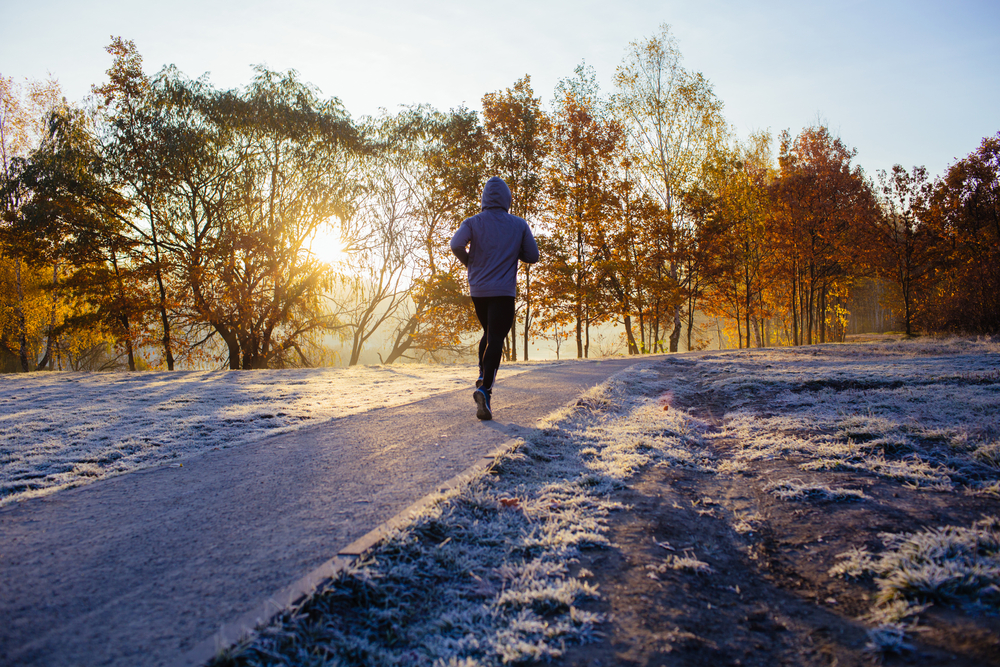Cardio in the winter can feel laborious for many reasons.
The shorter days means less time to run outdoors, and the frigid temperatures cuts down that time even more, leaving you with the motivation to do nothing more than hide under blankets with a glass of wine.
But there’s actually scientific reasons why people seem to struggle more with cardio in the winter time.
A new study published in the European Journal of Preventive Cardiology suggests a link between higher vitamin D levels and increased cardiorespiratory fitness.

Our main source of vitamin D is sunlight, and exposure to that sunlight is reduced during the season, ultimately influencing our fitness when doing cardio.
In the study, which assessed the health data of 1,995 people between the ages of 20 and 49 years, researchers found the participants with the highest quartile of vitamin D levels had higher higher cardiorespiratory fitness than participants in the lowest quartile.
Related: A 10-Minute Cardio Workout You Can Do At Home
“Our study shows that higher levels of vitamin D are associated with better exercise capacity,” says Dr. Amr Marawan, one of the authors of the study.
“The relationship between higher vitamin D levels and better exercise capacity holds in men and women, across the young and middle age groups, across ethnicities, regardless of body mass index or smoking status, and whether or not participants have hypertension or diabetes.”
So if you don’t want your cardio game to suffer from the lack of sun exposure, you can intake more vitamin D-rich foods like cheese, eggs, fatty fish (tuna, mackerel, salmon), or vitamin D supplements. Outside of that, book a sunny holiday vacation to a hot and exotic destination!
Photo Credit: Maridav/Shutterstock.com; baranq/Shutterstock.com












